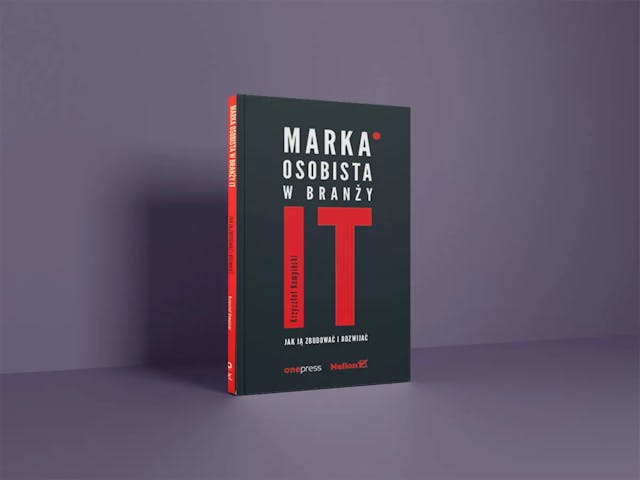The future undoubtedly belongs to those who understand the language of code and can apply it practically. That's why it's essential to think about which programming language is best to start learning with.
Choosing your first programming language can be challenging, as there are many different options. However, some languages are more beginner-friendly than others.
So, it's worth focusing on languages that are popular, easy to learn, and widely used—I'll tell you about those in this post.
What's the Best Programming Language to Start With and Why?
One of the most commonly recommended languages for beginners is Python. This programming language is known for its readability and simplicity.
It's often compared to English because of how easy it is to read. In fact, when you see a few lines of Python code, unlike in other languages, you can almost instantly get a sense of what's happening.
Python is also used in many fields, such as data analysis, artificial intelligence, and web development. That's why learning Python can be a great idea—it was also the first language I learned.
If you're interested in web development, you should consider learning HTML and CSS. HTML is used to structure content on a website, while CSS handles the styling and appearance of that content.
They're relatively easy to learn and will give you a foundational understanding of web development. Although HTML and CSS aren't considered programming languages, the first actual programming language in the frontend world is JavaScript.
JavaScript is my favorite language, and I work with it daily ❤️.
Another good beginner language is Java. This language is widely used in banks, large corporations, and is the foundation of many applications and platforms.
Java is also an object-oriented programming language, which means that learning it gives you both language knowledge and essential object-oriented programming techniques.
Why Does Your First Programming Language Choice Matter?
Choosing your first programming language matters, especially if you have a specific idea of your programming career. For example, if you're most interested in web development, starting with HTML, CSS, and JavaScript is the best approach.
Another aspect to consider is versatility, which was also important to me at the beginning.
That's why I chose JavaScript, because it's incredibly versatile and can be used for servers, frontend, mobile apps, and even artificial intelligence and microcontrollers.
We'll talk soon about why your first language choice isn't the most critical factor. Still, in this section, I want to emphasize that if you have a specific plan, there's no reason to learn five different programming languages. Stick with the one that fits your path the best, at least until you land your first job.
I know it can be tempting to learn multiple things at once, but the truth is, when you look at most job postings, you'll usually see only one or maybe two languages. The focus is on specialization, not a basic understanding of five different languages.
Why Doesn't Your First Programming Language Matter?
Now, let me explain why many people say that your first programming language doesn't matter.
Why? Because regardless of the language you choose to start with, many programming languages are quite similar to each other at the foundational level, with the main differences being in syntax.
For example, once you understand what a variable, function, or loop is, the concept is almost identical across many popular languages.
So, whether you choose Python, JavaScript, Java, or another language, the early stages will be quite similar.
Let me share my experience to show why this statement holds true.
I started programming with Python and learned it for about a month. But later, I realized that frontend development excited me more, so I switched to learning JavaScript instead of sticking with Python.
And after that month of learning Python, switching to JavaScript was much easier because I already understood variables, loops, and functions. The only thing that changed was the syntax.
By the way, I'm planning to learn Python again because I've noticed the vast opportunities it offers, and many job postings require skills in React + Python.
Even if the language you choose becomes less popular in the future, don't worry—once you've learned the basic programming principles, you'll easily adapt to another language.
It's also important to understand that there is no "best" programming language to start with. It all depends on your preferences, goals, and interests. You can start with a language you find appealing or that fits your needs.
The most important thing is to start coding and not delay the decision.
Choose the programming language that interests you the most and begin your journey.
Don't stress about which language is the most popular or trending at the moment.
The key is to gain experience and develop your programming skills, no matter which language you start with.
What Are the Most Popular Programming Languages and Why?
There are many programming languages in the world, each with its unique features and uses.
Choosing the right programming language may be challenging at first, but don't worry—I'm here to explain the current situation, at least in 2023!
First, you need to ask yourself what you want to learn and why you want to code.
There are many popular programming languages, but three stand out as the most popular—JavaScript, Python, and Java.
Why should you start with these specific languages?
First, JavaScript is essential in today's internet world.
It's used to create websites, interactive elements, games, and web applications.
Additionally, JavaScript is very flexible and can be used on both the client and server sides. By learning JavaScript, you'll be able to create full-stack web applications.
Second, Python is hugely popular in the scientific community and data analysis.
It's straightforward to learn and highly readable, making it an ideal choice for beginners. Python also has an extensive collection of libraries for various tasks, such as data analysis, machine learning, or programming neural networks.
Finally, Java is one of the oldest and most stable programming languages.
It's widely used in developing software across multiple platforms, including mobile and desktop devices.
Java provides a solid foundation for understanding programming logic, making it helpful in learning other languages.
To sum up, choosing a programming language may be challenging, but starting with JavaScript, Python, or Java is a smart choice.
My Two Top Picks for Beginners?
There are many programming languages great for beginners, but when it comes to starting, my top recommendation is Python.
Why? Python is one of the most popular programming languages in the world, meaning there's an abundance of support from the programming community and tons of educational resources.
It's also relatively easy to learn, making it much easier for beginners to grasp the basics of programming. Plus, Python is incredibly versatile and finds use in fields like data analysis, artificial intelligence, web development, and more.
My second pick is my beloved JavaScript. Without a doubt, it's one of the best languages for beginners.
Starting to code can be tough, but JavaScript is beginner-friendly for many reasons. It's versatile—you can use it for websites and mobile apps alike.
And if you're wondering, JavaScript also has loads of learning resources, like tutorials, guides, and an enormous community ready to help.
So if you're asking what language to start with, JavaScript is a fantastic foundation that opens many doors to further growth.
Which Programming Language to Choose Based on Your Goal?
Choosing the right programming language might be a bit overwhelming for beginners, as there are so many options.
But don't worry—I'm here to give you some tips to help you make the best choice based on your goal.
If you want to learn how to build websites, a great choice is to learn HTML, CSS, and JavaScript.
HTML will help you structure websites, CSS will let you style them, and JavaScript will provide interactivity. These are the three essential frontend languages that work perfectly together.
If your goal is to create more advanced web applications, you should also look into languages like PHP, Java, C++, Ruby, or Python. These are primarily used for backend development—the business logic that runs on the server side.
Their learning will allow you to create interactive websites and handle databases.
When choosing a language, consider the availability of educational resources, the complexity of the language, the size of its community, and the number of job offers related to that technology.
No matter what language you choose, remember that learning to program is an ongoing challenge requiring consistency and constant improvement. So don’t give up, stick to your goals, and push towards your dreams!
Is It Worth Starting with C++?
In some places, I’ve seen advice that when learning to program, you should only start with C++.
I can’t agree with this, and in fact, this bad advice almost made me quit programming entirely.
Why? Because C++ is a low-level language, and understanding even basic concepts was much more complicated for me than in high-level languages like Python or JavaScript.
I don't think I'm a worse programmer for not learning C++ at the start—I focused on high-level languages, and I'm totally fine with that.
That’s why I highly recommend against learning C++ as your first language. When there are simpler and more enjoyable
options, why start with something complex, especially for beginners?
Becoming a programmer also requires passion and dedication to learning.
If someone new to coding starts with C++, they might quickly get discouraged. The high entry threshold could turn them away. But if that same person started with Python or JavaScript, I believe they'd be far less likely to give up.
I hope this post helped you figure out how to choose your first programming language 😉.








